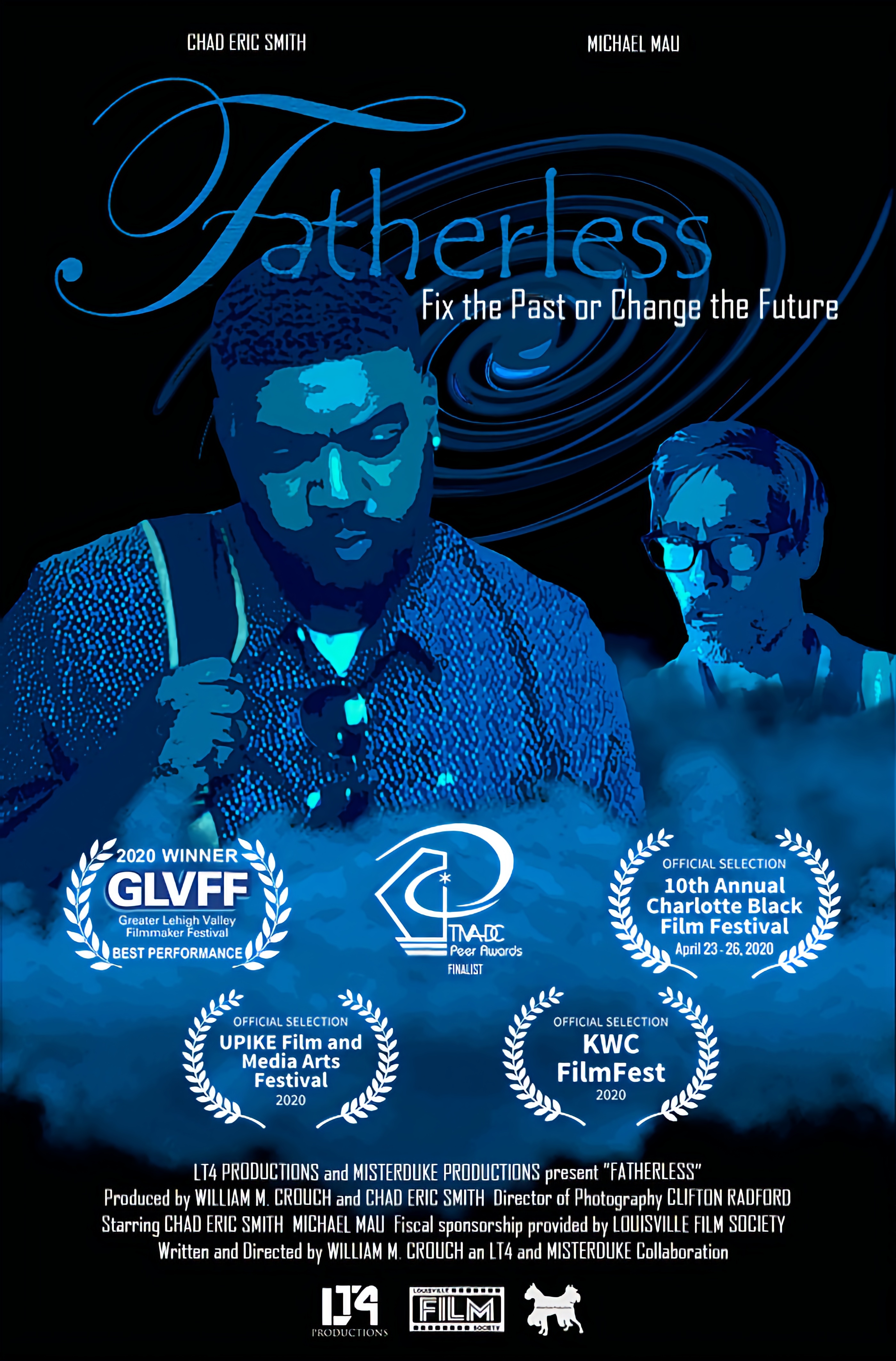The Short Film Fatherless Offers a Sci-fi Option

Children lacking their father’s presence has occurred throughout the centuries. War, occupational responsibilities, death, societal structures, domestic and personal conflicts have contributed to children maturing in the absence of their father. When children have an absent parent(s), they can experience complex feelings of missing the development of a parent-child relationship in which they envisioned. Feelings of sadness and longing may exist when there is a lack of understanding of the meaning behind the parent’s absence. These feelings, though beginning in childhood, may persist into one’s adult life. Within the film Fatherless, written by William M. Crouch, Logan Avery performed by Chad Eric Smith depicts an emerging adult who struggles to settle his turbulent feelings directly attributed to the loss of his father in his life.
There are all types of families. Individuals comprised of fathers, mothers, same sex couples, single parents, neighbors, community and other come together to create a group of unconditional support. Hamer (1997) cited, “No child is born fatherless” (p. 564), though father’s may not be involved in the historical nuclear family composition. For example, surrogates from supportive environments (i.e. mentors, family friends, etc.) may act in the capacity “father”. Within this ascribed role, children can possess expectations of how they would like their father to behave and present. When fathers who do not assimilate to western world views of fatherhood, children can experience emotional turmoil fueled by disappointment and unfulfilled desires of having one’s needs met in a particular manner. Such paternal ideals include providing sustenance to one’s family, supporting one’s offspring in the pursuit of happiness, careers, and academic pursuits by providing financial and emotional support for education, allowances and supplements that offer indication that one values his child/children (Hamer, 1997). When a father does not adhere to these standards, children may consider their fathers to be “villains and alleged to have demonstrated little or no real feelings for their families’ well-being” (Hall, 1981, p. 159). As a result, these children can begin to feel unrelenting negative feelings that endure until an event occurs that leads to the ability to exonerate or reconcile their negative emotions.
Logan, a budding physicist began his career with an aspiration to understand and develop time travel. It is soon learned that his interest is personal; where he has one desire; to return to the past to understand and repair his relationship with his father during his childhood. In doing so, Logan hopes that he will be able to resolve his feelings around the loss of his father in his life. While he pursues his hypotheses, he encounters a lack of support by his colleagues leaving him to feel alone in his endeavors, a seemingly familiar feeling held throughout his life. A need to forge his path independently, Dr. Albreit, a fellow colleague, acted by Michael Mau finds promise in Logan’s theory, encouraging him to continue to place forth effort to his ideas and is equally curious regarding what he will discover. In providing Logan support, Dr. Albreit’s unconditional belief in Logan’s abilities provides Logan with a paternal dynamic he craves, though the relationship does not satiate his hunger to return to the past to gain answers. Rather, his desire to return to his origins is further fueled by their joint enthusiasm giving Logan the fortitude he needs to persevere to learn the truth about his father.
Attempting to understand why a parent is absent has the potential to consume one’s emotional existence. Possessing a desire to understand, “Why?, What caused my parent to be absent?” has the power to dominate one’s thoughts, influence one’s behaviors and have a great impact on one’s adult life trajectory. Discovering a coherent narrative that provides an understanding of the reason(s) one’s parent is absent can assist in making meaning for the absence and quell restless negative feelings generated by the mysterious of the unknown. In doing so, the child, even when conflicted, can be provided information needed to create space for the evolution about one’s thoughts regarding their parent. Though, similar to Logan’s experience, most find that when provided complex details of the past, it leads to complicated feelings that also necessitates attention for healing and a feeling of resolve.
To watch the trailer of Fatherless visit: https://vimeo.com/377431724
To learn more about the development of Logan’s character, join Chad Eric Smith in this behind the scenes featurette: https://youtu.be/iYeti7nbIfw
References
Hall, L. K. (1981). Support system and coping patterns. In L.E. Gary (Ed.) Black Men (p. 158-172). Beverly Hills, CA: Sage.
Hamer, J.F. (1997). The fathers of “fatherless” black children. Families in Society; 78, 564-578.

